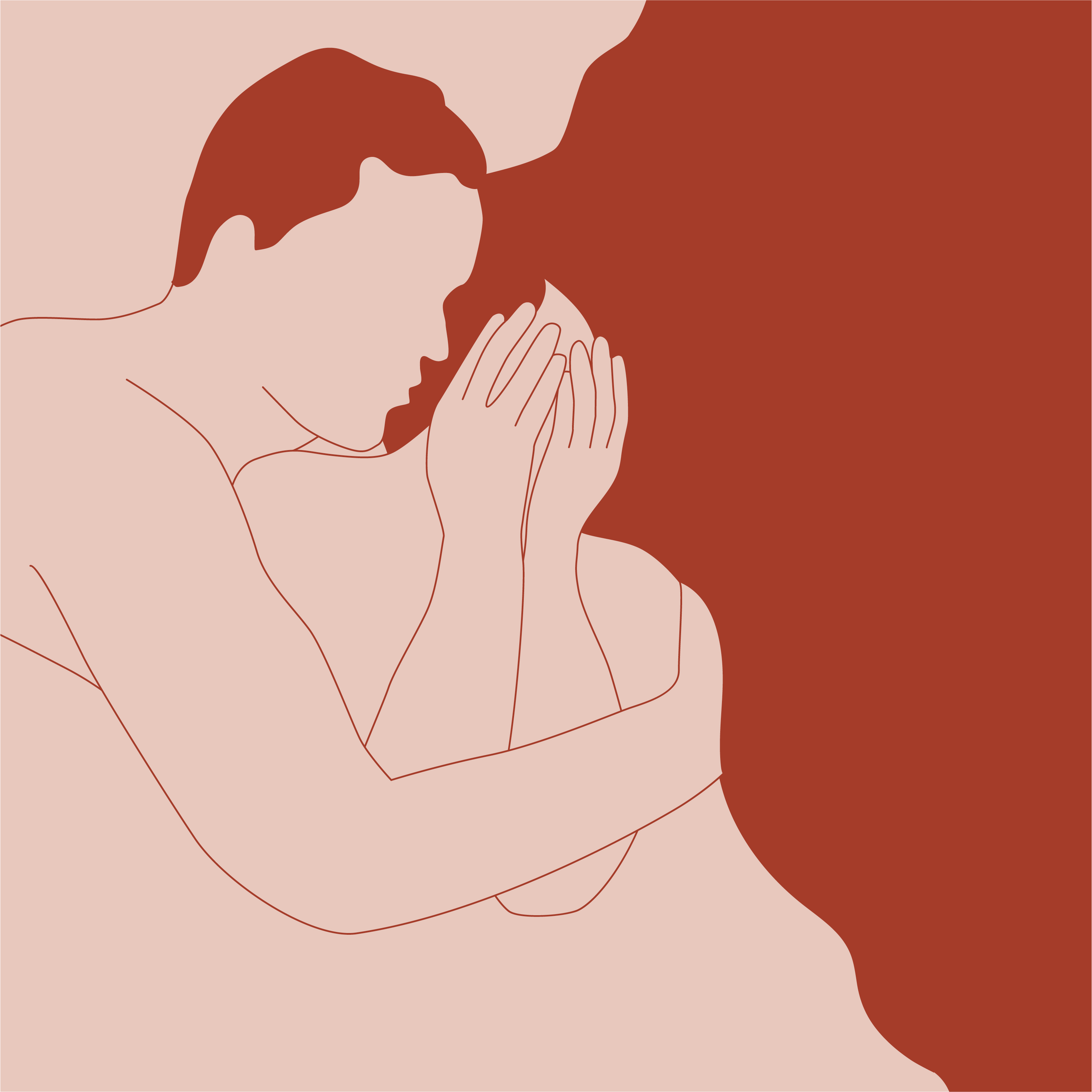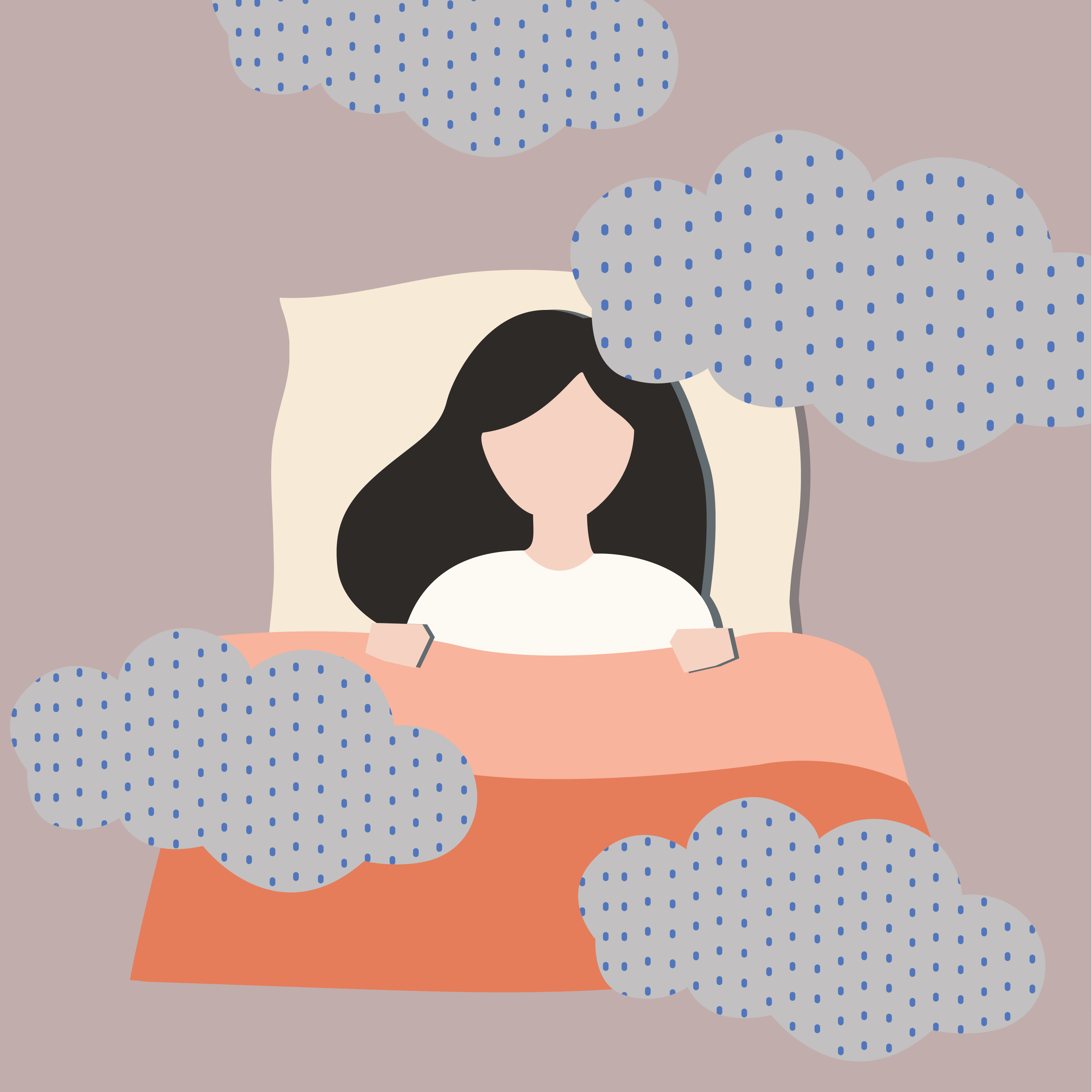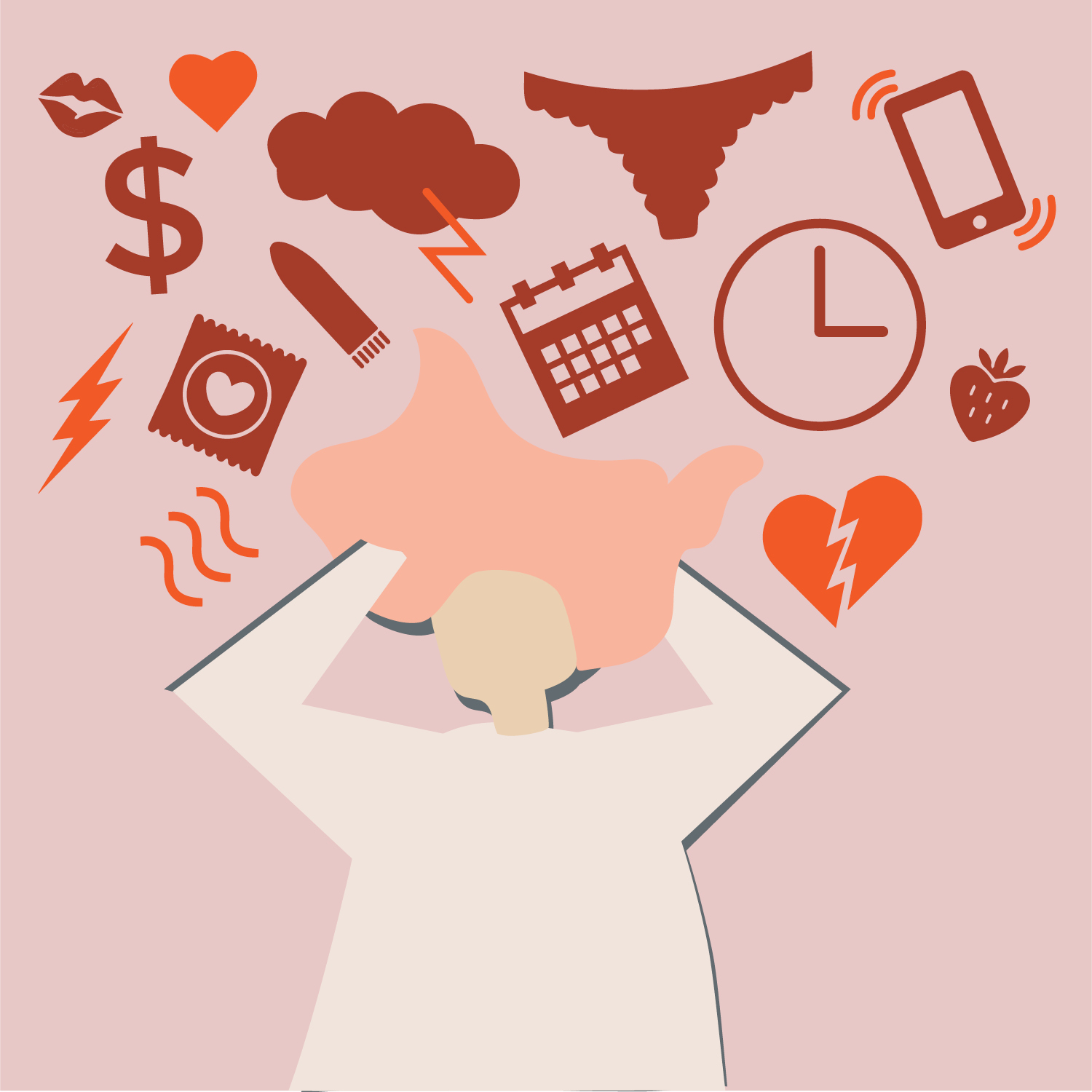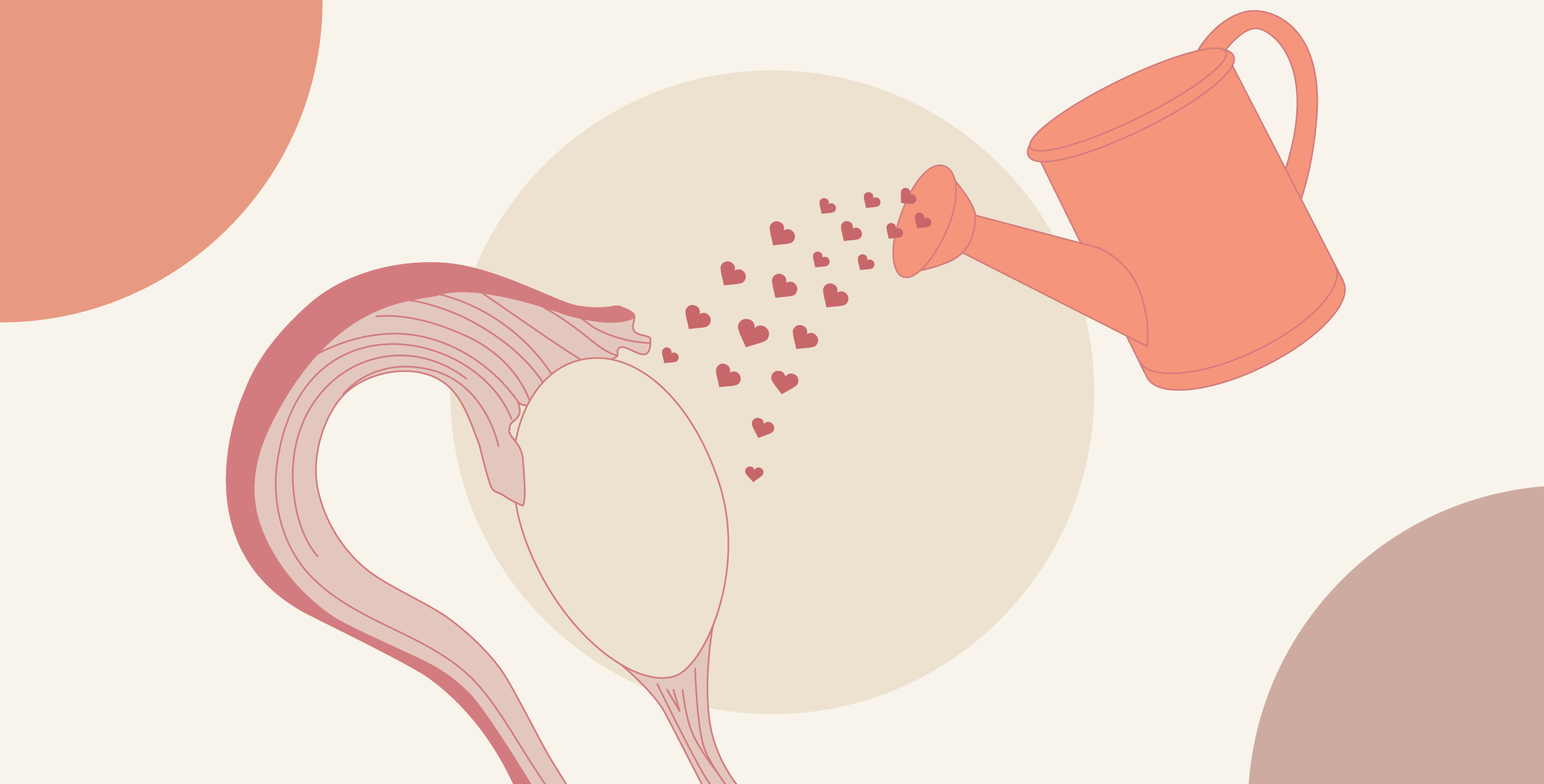Apr 03, 2023
WHAT ARE OVARIES? GIVEN YOURS MUCH THOUGHT LATELY?
Most people don’t pay much attention to their ovaries. These organs operate quite unnoticed; releasing eggs, oestrogen and progesterone for menstruation, fertility and pregnancy. So it makes sense ovaries are often left unchecked, especially if they’re assumed to be working well.
But even if your cycles are mostly regular, you’re fertile and pregnancy is viable, ovarian health isn’t always predictable. So in the spirit of spotlighting these amazing reproductive organs, here are the key things to know about ovaries.
What are your ovaries, where are they located and how do they function?
Remember those diagrams of the female reproductive system on your GP’s wall or back in health class? Well, ovaries are the oval-shaped glands on each side of the pelvic wall, attached via the fallopian tubes.
Essentially, ovaries have the dutiful job of producing eggs. Generally the size of a large grape, ovaries carry around one million eggs from birth, though this number decreases to around 300,000 after puberty, with only around 400 eggs actually released during a person’s lifetime. Ovaries also produce the hormones oestrogen and progesterone, which impact fertility and pregnancy.
Once puberty hits, the ovaries release an egg each month during the ovulation stage of a menstrual cycle. The egg travels down the fallopian tubes, where, if fertilised by sperm, can result in pregnancy, and if not, the egg is absorbed back into the body and the uterine lining is shed, resulting in your period. In menopause, ovaries produce less oestrogen and progesterone and stop releasing eggs.
There’s the basics of ovaries: to produce eggs and release hormones. However, it’s important to remember that everyone’s ovaries may be a little different. For example, some ovaries may carry fewer eggs, produce varying levels of hormones, or be bigger or smaller in size.
How can I care for my ovaries?
It is important that we are looking after our ovaries. There are many ways we can do this, including;
- Balanced diet: Including Vitamin A-rich foods like eggs, milk and spinach in your diet can help improve ovarian function. As with general health and well-being, tobacco consumption can also harm ovarian health. Be mindful of what you consume, and remember it’s all about balance.
- Exercise: This is very important to ovarian health, though remember not to push yourself too hard, as over-exercising can potentially speed up egg loss. Consider setting a goal for a daily walk, yoga practice or weekly workout session with a friend, to ensure exercise is part of your routine.
- Reduce stress: High-stress levels don’t just impact your general quality of life but can decrease ovarian function. No one is immune to the stresses of life, but there are ways to decompress and relax when stress rises. Using mindfulness techniques like meditation and journaling, as well as prioritising healthy sleep can be beneficial.
- Checking in with your body: If something’s not quite right, be it a missed period or irregular pain in the abdomen, it’s worth a visit to your GP or gynaecologist. From there, a look into your hormone levels and further monitoring can pinpoint whether it may be an ovarian issue.
What are the common ovarian health conditions?
As much as we try to look after our bodies, sometimes things are outside of our control. That’s where it’s important to know the common ovarian health conditions.
- Polycystic Ovary Syndrome (PCOS): Essentially, PCOS is when ovaries pump out more of the androgen hormone than is normal. This can lead to little follicles growing from the ovaries, which can affect the menstrual cycle and may lead to ovarian cysts. The specific cause of PCOS is unclear, however insulin resistance, diet and genetics are thought to play a part. Frustratingly, this one’s quite difficult to diagnose due to its many symptoms of potentially varied causes - think cycle irregularity, excess hair growth, acne or sudden weight gain.
- Premature ovarian failure: This is when ovaries stop working normally, meaning they stop producing the usual amounts of hormones or stop releasing eggs regularly. The symptoms are similar to menopause, like irregular periods, hot flashes, vaginal dryness and difficulty falling pregnant. However, these symptoms generally show up in people under menopausal age. Premature ovarian failure can lead to infertility, although it doesn’t necessarily mean those with the condition won’t ever have periods or fall pregnant.
If you’ve experienced the aforementioned symptoms, or have been missing your period for three or more months, it’s worth seeing your health practitioner.
- Ovarian Torsion: An ovarian torsion occurs when the ovaries get tangled around their supporting tissues, cutting off their blood supply. Although uncommon, this is serious and needs immediate attention, as you can risk losing an ovary. So if you suddenly feel intense abdominal pain, cramping and/or nausea, it’s advised you visit your nearest hospital as soon as possible.
- Ovarian Cancer: Impacting around 1,800 Australians each year, ovarian cancer occurs when a cancerous tumour grows in either one or both ovaries. Symptoms often resemble other potential causes, like constant bloating, abdominal pain, frequent urination, feeling full often, sudden weight loss or gain, and pain during or bleeding after sex. Unfortunately, early detection tests or screenings don’t yet exist for ovarian cancer, so it’s important to look out for any symptoms and to understand your family history or predisposition to ovarian cancer.
These incredible organs might just be the most fascinating part of the reproductive system. So look after them, check in with your body and stay on top of any concerns you may have by visiting your GP. Remember that no issue is too small when it comes to your health and that any symptoms you may experience deserve to be taken seriously.
Blogs

Jun 08, 2022
EXPLORING PERIOD CARE IN CULTURES AROUND THE WORLD
Our TOM Talks panelist Sabina McKenna explores how different cultures around the world approach period care.
Read More
Jun 08, 2022
STOP APOLOGISING FOR HAVING YOUR PERIOD
Our TOM Talks panelist Mel Mason talks about the importance of not apologising for having your period.
Read More
Jun 07, 2022
STRESSED? NOT SLEEPING? TRYING TO CONCEIVE?
TOM Talk's panelist Georgia Hartmann discussed the links between stress, sleep and fertility.
Read More
Jun 07, 2022
STRESS AND HOW IT AFFECTS YOUR SEX DRIVE
Certified sex coach Georgia Grace is here to unpack the link between stress and sex.
Read More
